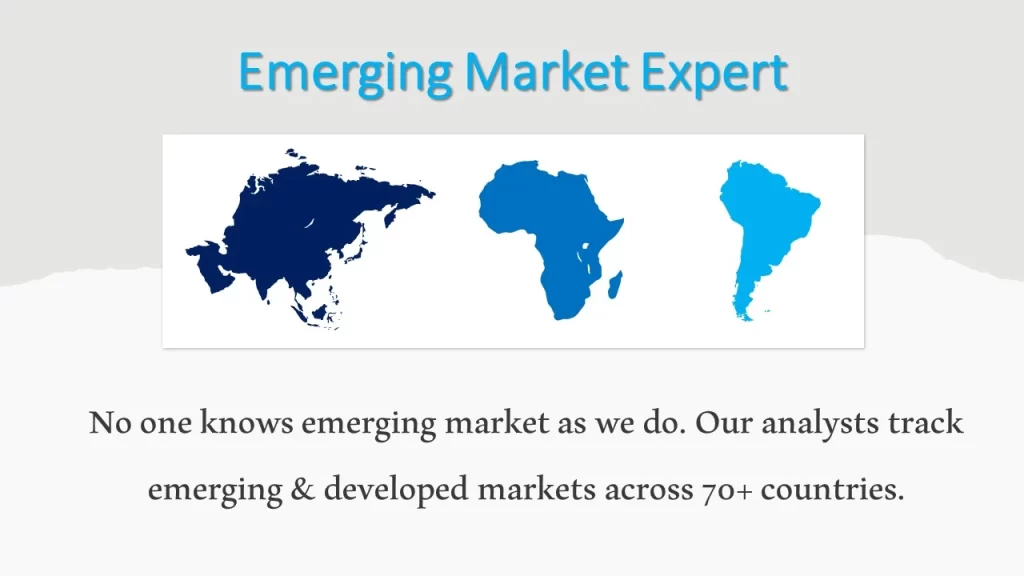Germany Electric Vehicle Battery Market by Battery Type (Lead Acid Battery, Lithium-Ion Battery, Nickel-Metal Hydride Battery and Solid State Battery), By Propulsion Type (Battery Electric Vehicle, Plug-in Hybrid Electric Vehicle and Hybrid Electric Vehicle) and By Vehicle Type (Two-Wheelers, Three-Wheelers, Electric Cars and Electric Buses & Trucks) – Opportunities & Forecast, 2019-2026
The electric vehicle battery is considered to be an integral component of an electric vehicle without which the electric vehicles cannot run because the battery provides an uninterrupted supply of power to the motor and other parts of the vehicles, hence driving the vehicle. The batteries designed for electric vehicles have certain added features when compared to the traditional ones and designed in a manner that they can provide power over a sustainable period. The batteries which are used for supplying power to the electric vehicles such as lithium-ion batteries, lead acid batteries are recyclable.
To have an edge over the competition by knowing the market dynamics and current trends of “Electric Vehicle Battery Market”, request for Sample Report here
The rising government efforts and investments for the manufacturing or development of electric vehicle batteries and the continuous growth in the sales of electric vehicles in Germany are the key factors bolstering the growth of electric vehicle battery market across the country during the forecast period. The German government reserved €1bn for supporting the battery cell production in the country along with an additional €500m to support the research into the next-generation and the existing batteries for electric vehicles. Moreover, the rising technological advancements and growing research and development activities for the production of enhanced batteries for electric vehicles are also some key reasons which are fuelling the market growth of the electric vehicle battery in Germany. In addition, the inclination of manufacturers to foster home-grown battery cell production for ensuring a significant stake in the market is leading to an increase in investments for the development of batteries. The growing production of electric vehicles owing to the increasing consumer demand for efficient and increased performance vehicles is paving the way for the electric vehicle battery in the coming years. The factor which is restraining the growth of electric vehicle battery market includes the variations in the prices of raw material.
According to IEA, the electric car stock in the Germany market was about 177.07 thousand and the market share of electric cars was around 1.96% in 2018. According to a report of the Federal Motor Transport Authority, around 26,000 battery electric vehicles and approximately 131,000 hybrid electric vehicles were registered by mid- 2016. The government planned to reach a goal of one million electric vehicles on German roads; to achieve this goal, the government decided to provide subsidy to the car buyers. A buyer’s premium of 4,000 EUR is paid for the acquisition of an electric car, out of which half is paid by the government and half by the electric car manufacturers.
German Federal Ministry of Economic Affairs and Energy presented an industrial plan, “Industrial Strategy 2030”. The central field of action of the strategy is to strengthen the key enabling technologies such as battery cell manufacturing, artificial intelligence and digitization.
For instance, in 2019, the German government introduced a plan to fund a research facility for offering the Germany firms to know-how to develop battery cells for the electric vehicles along with helping them to reduce the risk associated with the battery production of electric vehicles. The government also planned to compete with the Asian producers of batteries that dominate the industry.
Do you want to know more about the Research process and detailed Methodology, Request Research Methodology of this report
Based on battery type, the lithium-ion battery segment is anticipated to grow at higher rate during the forecast period owing to its increasing adoption in the market among the manufacturers of electric vehicles as a result of its characteristics such as high energy density, less space requirement and lightweight. Increased lifespan and eco-friendly nature of the lithium-ion battery also drives the market growth of this segment.
On the basis of propulsion type, the battery electric vehicle is expected to increase at a higher rate over the forecast period owing to the increase in the production and launch of such vehicle by the manufacturers of electric vehicles. This type of electric vehicles is also referred to as all-electric vehicle which depends entirely on the rechargeable battery packs and runs on the power generated from the battery hence reducing the carbon emissions in the market further fuelling the market growth of this segment.
Based on vehicle type, electric car is projected to grow at a higher rate during the forecast period owing to increase in sales of electric car in the market of Germany because of the rising demand among the consumers for electric vehicles. Rapid urbanization and increasing disposable income are also leading to an increase in the demand for electric cars driving the growth of market of this segment.
In case, any of your paint points areas are not covered in the current scope of this report, Request for Customization here
Various notable players operating in the Germany electric vehicle battery market include BYD Company Limited, LG Chem, Tesla, Inc., Liacon Batteries, Samsung SDI Co., Ltd., Toshiba Corporation, Contemporary Amperex Technology Co. Limited, Panasonic Corporation, EAS Batteries, and BMZ Group among others.
Key Market Developments:
-
- In 2019, Tesla announced the plan to set up a factory near Berlin for the manufacturing of batteries, powertrain along with the vehicles, initiating with the company’s latest model, Model Y.
- In 2017, Toshiba Corporation launched its next-generation SCiB, a lithium-ion battery that utilizes a new material to double the capacity of the battery node. The battery also offers high-energy density along with ultra-rapid recharging that is needed for the automotive applications.
The Germany electric vehicle battery market has been segmented on the basis of battery type, propulsion type and vehicle type. On the basis of battery type, the market is segmented into lead acid battery, lithium-ion battery, nickel-metal hydride battery and solid state battery. Based on propulsion type, the market is segmented into battery electric vehicle, plug-in hybrid electric vehicle, and hybrid electric vehicle. Based on vehicle type, the market is segmented into two-wheelers, three-wheelers, electric cars and electric buses & trucks.
For detailed scope of the “Electric Vehicle Battery Market” report request a Sample Copy of the report
Key questions answered in this research report:
-
- At what pace is the Germany electric vehicle battery market growing? What will be the growth trend in the future?
- What are the key drivers and restraints in the Germany electric vehicle battery market? What will be the impact of drivers and restraints in the future?
- What is the various type of batteries used in the electric vehicles in the Germany market, and how they are poised to grow?
- What companies are the major participants in this market and their business strategies, how does the competitive landscape look like?
|
Report Coverage |
Details |
| Market Base Year |
2018 |
| Market Forecast Period |
2019-2026 |
| Market Revenues Currency |
USD Million |
| Base Year & Forecast Units |
Value (USD Million) |
| Market Segment | By Battery Type, By Propulsion Type and By Vehicle Type |
| Regional Coverage | Germany |
| Companies Profiled | BYD Company Limited, LG Chem, Tesla, Inc., Liacon Batteries, Samsung SDI Co., Ltd., Toshiba Corporation, Contemporary Amperex Technology Co. Limited, Panasonic Corporation, EAS Batteries and BMZ Group |
| 25% Free Customization Available | We will customize this report up to 25% as a free customization to address our client’s specific requirements |
Market Segmentation:
Germany Electric Vehicle Battery Market by Battery Type
-
- Lead Acid Battery
- Lithium-Ion Battery
- Nickel-Metal Hydride Battery
- Solid State Battery
Germany Electric Vehicle Battery Market by Propulsion Type
-
- Battery Electric Vehicle
- Plug-in Hybrid Electric Vehicle
- Hybrid Electric Vehicle
Germany Electric Vehicle Battery Market by Vehicle Type
-
- Two-Wheelers
- Three-Wheelers
- Electric Cars
- Electric Buses & Trucks
Leading market players (Option 1: Free 25% Customization – Profiles of 5 Additional Companies of your Choice)
-
- BYD Company Limited
- LG Chem
- Tesla, Inc.
- Liacon Batteries
- Samsung SDI Co., Ltd.
- Toshiba Corporation
- Contemporary Amperex Technology Co. Limited
- Panasonic Corporation
- EAS Batteries
- BMZ Group
- Published Date: Feb-2020
- Report Format: Excel/PPT
- Report Code: UP201A-00-1219
Licensing Options
Single-User License:
The report is used by the purchaser (One Individual) only
Multi-User License:Report is shared with maximum 5 users (employees) including the purchaser of the purchasing corporation only
Corporate License:
Report is shared with unlimited user (employees) of the purchasing corporation only
The report is used by the purchaser (One Individual) only
Multi-User License:Report is shared with maximum 5 users (employees) including the purchaser of the purchasing corporation only
Corporate License:
Report is shared with unlimited user (employees) of the purchasing corporation only
Germany Electric Vehicle Battery Market by Battery Type (Lead Acid Battery, Lithium-Ion Battery, Nickel-Metal Hydride Battery and Solid State Battery), By Propulsion Type (Battery Electric Vehicle, Plug-in Hybrid Electric Vehicle and Hybrid Electric Vehicle) and By Vehicle Type (Two-Wheelers, Three-Wheelers, Electric Cars and Electric Buses & Trucks) – Opportunities & Forecast, 2019-2026
$ 4,499.00 – $ 6,649.00
Why GMI Research







